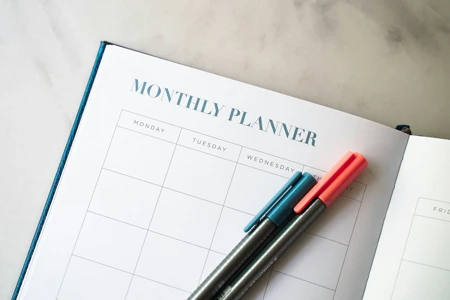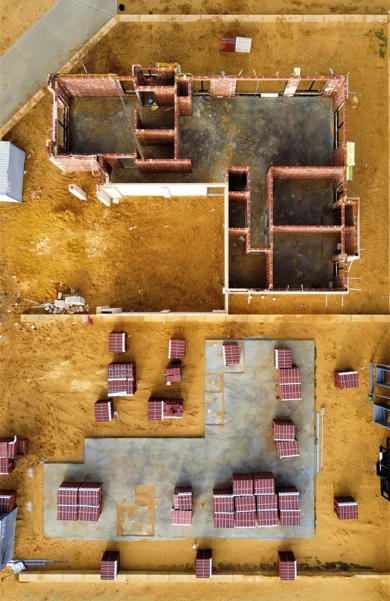 Written by: Danny Belton - Head of Lending
Written by: Danny Belton - Head of Lending
Buying a house is a big milestone for many, and it can mean stability, security, and a place to call home. When you’re getting started with any new journey, it’s helpful to have a map. That way, you’re all geared up for the trip.
Understanding the process of buying a house is important for a few reasons, but the two biggest include making informed decisions (at the right time) and managing your expectations.
In this article, we’ll explore the house buying process, key steps involved, and tips for navigating delays.
What affects the house buying process?
It’s important to remember that the timeline for buying a house can vary depending on factors such as market conditions, the financial options available, and your unique circumstances. That being said, you can break the usual process down into a few key phases:
1. Preparation phase
This phase involves taking a closer look at your financial situation, working out a budget, and getting a mortgage in principle. It’s also important at this point to gather all the documents you need, including:
- Proof of income
- Bank statements
- Proof of ID
2. House hunting
Once you have a mortgage in principle and a clear understanding of your budget, you can start searching for your dream home. This phase can last anywhere from a few weeks to a few months. It all depends on what’s available in the market, and your specific preferences.
3. Making an offer
When you find a property that works for you, you’ll need to make an offer through your estate agent. This means negotiating with the seller about price, terms, and the conditions of the sale.
4. Offer accepted
Once the seller has accepted your offer, the property officially becomes “under offer,” and you’ll enter into an agreement with the seller. During this phase, you’ll have a period of time available to do surveys, valuations, and finalise your mortgage details.
5. Exchange of contracts
Once everything has been finalised, it’s time to exchange contracts. This is the part where the sale becomes legally binding - once both parties have signed and committed to completing the transaction. This usually occurs a few weeks after the seller accepts your offer.
6. Completion
Completion is the final stage of the house buying process, where ownership of the property is officially transferred to you, and you can move in. This usually happens a few days to a few weeks after the exchange of contracts, depending on the agreed-upon timeline.
How to navigate delays
It’s difficult to accurately judge exact timelines, but delays can be frustrating. There are things you can do to prepare for potential delays, making it easier to solve problems where you can. What can cause delays in the house buying process?
1. Mortgage approvals
Delays can occur if there are issues with mortgage approvals or if the lender’s process takes longer than expected.
The solution: stay in touch with your lender and hand over any requested information as soon as possible.
2. Surveys and valuations
Delays may crop up if there are issues during property surveys or if the valuation comes in lower than the agreed-upon purchase price.
The solution: address any survey issues promptly and work with the seller to find a resolution.
3. Legal process
Legal issues such as title disputes or missing documentation can delay the homebuying process.
The solution: work with a qualified conveyancer or solicitor who can help identify and address any legal issues efficiently.
4. Chain delays
In a chain, where multiple property transactions are linked, delays in one can impact the others in the chain.
The solution: patience is the name of the game here, but you can make the process easier by communicating with all parties involved.
5. Market conditions
Housing supply and demand can impact the process of buying a house. In a competitive market, it may take longer to find the right property, whereas in a buyer’s market, there may be more options available.
The solution: do your research about what kind of market you’re entering into. That way, you know what to expect before you even get started.
Speak with a mortgage adviser if you’re unsure about whether now is the right time to start house hunting.
How an adviser can help you get mortgage ready
Working with a mortgage adviser can streamline the house buying process, since they have tons of expert knowledge about the market, lender deals, and what products could work for you. This means they can give you tailored advice unique to your situation and goals.
From helping you understand your borrowing power and getting you a mortgage in principle, to guiding you through the mortgage application process, an adviser is your ally in all things homebuying.
Talk to us today and let’s get you mortgage ready.
Important information
Your home may be repossessed if you do not keep up repayments on your mortgage.
There may be a fee for mortgage advice. The actual amount you pay will depend on your circumstances. The fee is up to 1% but a typical fee is 0.3% of the amount borrowed.




